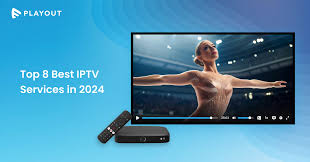The way we consume television content has drastically evolved over the british iptv past few decades. Traditional cable and satellite TV are increasingly being replaced by a modern and efficient technology known as IPTV. Standing for Internet Protocol Television, IPTV has revolutionized the television industry by offering content delivery through the internet rather than traditional broadcast signals. This article delves into the fundamentals of IPTV, its benefits, and the various ways it is reshaping how viewers interact with TV content.
What is IPTV?
IPTV is a system where television services are delivered via the internet, rather than through traditional satellite or cable formats. The key difference between IPTV and traditional TV is that while conventional TV uses radio waves to broadcast signals, IPTV uses the internet protocol (IP) to stream content directly to viewers.
With IPTV, users can access television content using a broadband internet connection, usually through a set-top box, smart TV, or compatible device such as a computer, smartphone, or tablet. The main advantage of IPTV is its ability to provide on-demand and live TV channels, as well as an interactive viewing experience that traditional broadcast services cannot match.
How Does IPTV Work?
Unlike conventional television where signals are sent from satellites or local broadcast towers to antennas or satellite dishes, IPTV sends content over the internet. Here’s how the system works:
- Content Encoding: TV shows, movies, sports events, and other media content are first encoded into a digital format.
- Content Delivery: This content is then delivered over the internet through a dedicated IPTV infrastructure. High-speed broadband connections are required to ensure high-quality streaming without buffering.
- Content Decoding: On the user’s end, an IPTV set-top box or app on a compatible device decodes the content and displays it on the screen.
With IPTV, users can select channels or shows on-demand, much like streaming services such as Netflix and YouTube, but with the added benefit of live broadcasts.
Key Types of IPTV
IPTV can be categorized into three primary services:
- Live TV: Just like traditional television, IPTV allows users to watch live broadcasts. This is ideal for sports events, news, and other real-time broadcasts. The content is transmitted in real time over the internet to the user’s device.
- Video on Demand (VOD): IPTV also provides VOD services, allowing users to choose content they want to watch from a library. With VOD, viewers can watch movies, TV shows, or documentaries at their convenience, without being restricted by a broadcaster’s schedule.
- Time-Shifted TV: This feature enables users to pause, rewind, or fast-forward live TV programs, providing greater control over the viewing experience. For instance, if you miss the beginning of a live broadcast, you can rewind it to catch up.
- Interactive TV: IPTV can integrate interactive services such as voting, gaming, and shopping, transforming the traditional passive TV viewing experience into a more engaging activity.
Benefits of IPTV
- Flexibility: One of the biggest advantages of IPTV is the flexibility it offers. Users are no longer tied to rigid broadcasting schedules. With IPTV services, viewers can watch their favorite content on their own time, whether it’s live TV, VOD, or recorded programs.
- High-Quality Streaming: As long as the internet connection is fast and reliable, IPTV services can deliver high-definition (HD) and even 4K content, offering superior picture and sound quality compared to traditional TV.
- Cost-Effective: IPTV can often be more affordable than traditional cable or satellite subscriptions, especially if bundled with internet and phone services. It eliminates the need for additional hardware like satellite dishes or cable boxes.
- Variety of Content: IPTV offers access to a wider range of content. Aside from local and international TV channels, users can subscribe to niche content providers, such as sports leagues, international programming, or specialized channels in various languages.
- Portability: IPTV can be accessed on various devices, such as smart TVs, tablets, smartphones, and computers. This portability allows users to watch their favorite shows while traveling or away from home.
Challenges and Considerations
While IPTV offers numerous benefits, it’s not without its challenges. The most significant obstacle is the reliance on a stable and high-speed internet connection. Since IPTV streams content over the internet, any disruption in service, such as slow internet speeds or outages, can result in buffering, lower-quality video, or loss of connection altogether.
Additionally, IPTV requires specific hardware, such as an IPTV set-top box or a compatible device, to decode and display the content. Some IPTV providers may also require users to install proprietary apps to access their service.
Another potential concern for users is the legality of some IPTV services. While legitimate IPTV services offer legal and licensed content, there are illegal IPTV providers that offer access to pirated or unauthorized content. Users should always ensure they are subscribing to a legal and reliable IPTV provider to avoid potential legal repercussions.
IPTV vs. Traditional TV: A Comparison
| Feature | IPTV | Traditional TV |
|---|---|---|
| Content Delivery | Delivered via the internet | Delivered via satellite or cable |
| Flexibility | Watch on-demand and live TV | Fixed schedule for live TV |
| Picture Quality | HD, 4K, and high-quality streams | Varies (mostly SD or HD) |
| Accessibility | Watch on multiple devices | Typically only on TVs |
| Portability | Can be accessed anywhere with internet | Requires a fixed location for satellite or cable |
| Cost | Generally more affordable | Typically more expensive |
The Future of IPTV
As technology continues to advance, IPTV is expected to become an even more integral part of the entertainment landscape. The growing adoption of 5G networks will further enhance IPTV’s capabilities, enabling smoother streaming, even higher resolution content, and better accessibility across different devices.
Furthermore, the development of Artificial Intelligence (AI) and machine learning could personalize the IPTV experience by recommending shows based on users’ preferences and viewing habits. IPTV is also likely to expand into newer realms, such as integrating with Virtual Reality (VR) and Augmented Reality (AR) to provide even more immersive viewing experiences.
Conclusion
IPTV has proven to be a game-changer in the entertainment industry, offering a more flexible, cost-effective, and user-friendly way to consume television content. With its various features like on-demand streaming, live TV, and interactive experiences, IPTV is poised to continue growing and reshaping the way people enjoy television in the digital age. As internet speeds increase and new technologies emerge, the future of IPTV promises an even richer and more engaging media experience. Whether you’re looking to cut the cord from traditional cable TV or simply explore new entertainment options, IPTV offers a wealth of possibilities.




